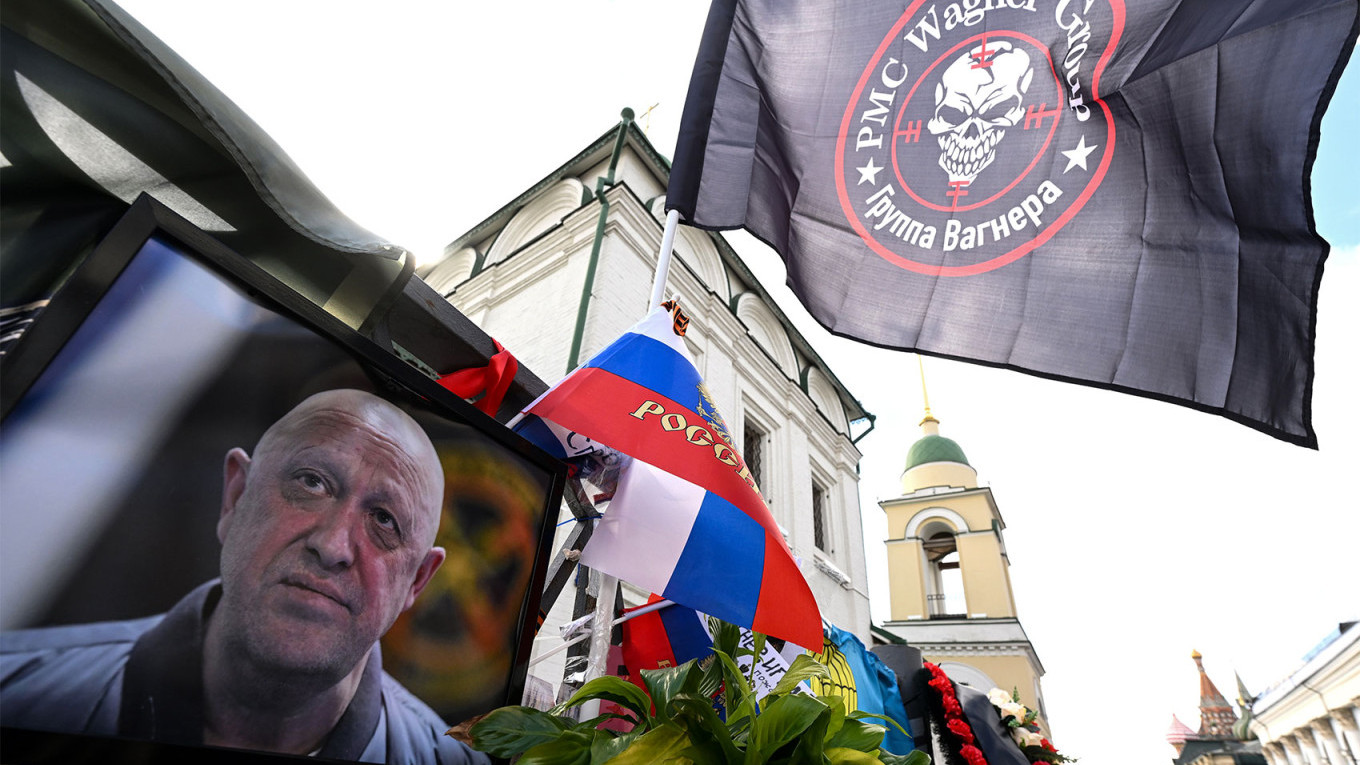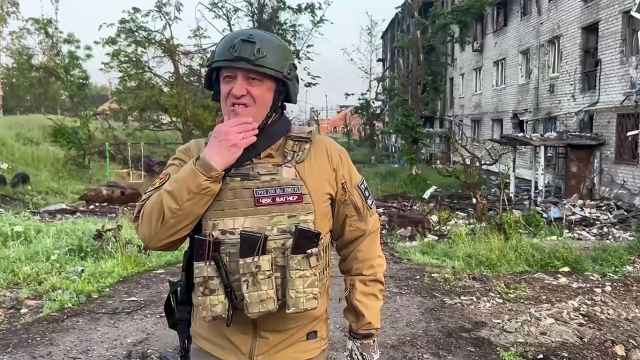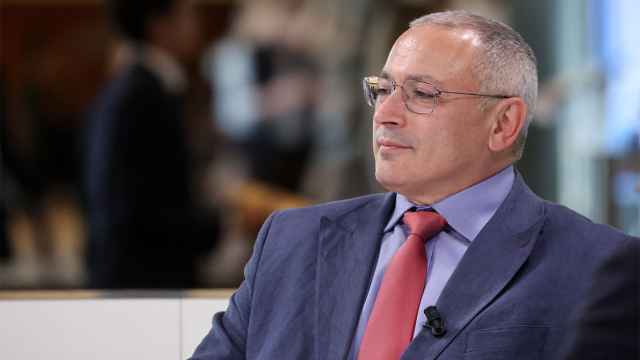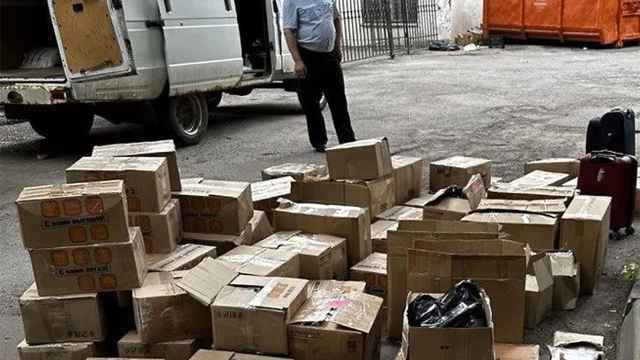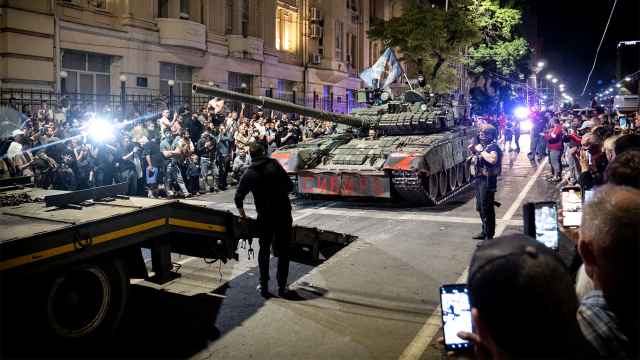The death of Wagner mercenary group leader Yevgeny Prigozhin has silenced one of the loudest critics of the Russian military’s performance in Ukraine and thrown the future of his business and private military empires into uncertainty.
His enduring image — and popularity — among some ordinary Russians and pro-war voices alike may prove much more difficult to erase.
In the aftermath of Prigozhin’s Aug. 23 death in a plane crash northwest of Moscow, some Russians expressed their grief with makeshift memorials to poems, while some of the most ardent Wagner supporters even said that they did not believe Prigozhin really died.
“Yevgeny Viktorovich [Prigozhin] is an honest, decent person who selflessly loves the people and Russia,” Nadezhda Semyonova, a Wagner supporter from Russia’s Northwest Federal District, told The Moscow Times.
“He gave us all hope for victory.”
Another man from the Siberian city of Bratsk echoed this sentiment.
“For every Russian family, he is Yevgeny Viktorovich, he is Uncle Zhenya… as if he were some kind of cheerful distant relative — Uncle Zhenya,” the man, Ilya Kablukov, said in a comment in an online group dedicated to Wagner.
Under Prigozhin, the Wagner Group had been accused of brutal tactics and human rights violations, both in the full-scale offensive on Ukraine and in its clandestine operations in global conflict zones such as Syria and Libya.
But his cultivated public image as a straight-talking man of action focused on achieving Russia’s victory in Ukraine won favor with a number of Russians, especially as the Russian military faltered on the battlefield.
In death, he will likely be held up as a symbolic contrast to the Russian government whenever it makes a misstep, experts told The Moscow Times.
"When he was alive, it was a more complicated story because he scared people with his prison background and his anger. Now, his popularity will grow as the situation at the front worsens,” Abbas Gallyamov, a political expert and former speechwriter for President Vladimir Putin, told The Moscow Times.
“People will say: ‘It was not like that under Prigozhin. Yevgeny Viktorovich [when he was alive] would not allow this’,” Gallyamov said.
As Wagner took on a more prominent role in the war in Ukraine, Prigozhin gained support among some fighters and ordinary Russians with his harsh criticisms of the Defense Ministry and brutally straightforward videos where, for instance, he showed slain Wagner fighters in Ukraine and accused officials of inaction.
His June 23 mutiny, which saw Wagner forces occupy a military command center in Rostov-on-Don and advance toward Moscow with little resistance, was seen as one of the biggest challenges to Putin’s 23-year rule.
Despite his controversial recruitment of prisoners — including rapists, murderers and, according to activists, a convicted cannibal — to the war in Ukraine and his mercenaries being accused of killing defectors with a sledgehammer, Prigozhin had become some a sort of “truth-seeker.”
“Among the military, and in general among men in Russia, the image of such a truth-seeker is quite popular,” a Russian army officer told The Moscow Times on condition of anonymity. “People believe that there is some kind of global injustice — and for the military, this injustice is the current state of affairs in the Defense Ministry. Prigozhin was a kind of an alternative.”
“My fellow soldiers for the most part do not even believe that he died,” the officer added, referring to rumors that the plane crash — which along with Prigozhin killed his right-hand man Dmitry Utkin and other Wagner figures — was a covert operation.
Another Russian soldier said that Prigozhin was supported by some Russians because he “created the image of someone close to the people."
Soon after last week’s plane crash, supporters started laying flowers, candles and Wagner flags outside the mercenary group’s headquarters in St. Petersburg.
Similar memorials also appeared across Russia, including Moscow, the Siberian cities of Novosibirsk, Irkutsk and Rostov-on-Don.
Also in St. Petersburg, police officers detained a former Wagner soldier, who was recruited from prison, after he opened gunfire due to “struggling to cope with personal emotions” following Prigozhin’s death, according to local media.
Some Wagner supporters even penned poems in his honor. Anna Revyakina, an employee of Moscow State University, published a poem that read: “He didn't die, he didn't die! He just went on vacation…our hero will fly forever now.”
The commemorations emerged despite an apparent campaign by the authorities to portray Prigozhin as a traitor following his mutiny.
Yet even after the mutiny, Prigozhin still maintained an approval rating of approximately 35%, according to the independent pollster Levada Center.
Following the plane crash, some experts and some public figures said that Prigozhin's demise was “a signal” to Russia's elite.
“In a sense, Yevgeny Prigozhin became a victim of his own PR. And Putin's engineering, of course,” said political analyst Kirill Rogov.
“With the help of Prigozhin, Putin managed to create a successful myth about an alternative army that could effectively replace the regular one and achieve results without the participation of the army leadership,” Rogov added.
It is unlikely, however, that Prigozhin’s posthumous image will significantly impact domestic politics, said Andrei Kolesnikov, an expert in Russian politics at the Carnegie Endowment for International Peace.
“Prigozhin’s supporters and sympathizers will not have an influence on political processes, they have no political weight,” Kolesnikov told The Moscow Times.
His death, more than anything, is an example that “even pro-military forces can only survive if they demonstrate loyalty to Putin,” Kolesnikov said.
A Message from The Moscow Times:
Dear readers,
We are facing unprecedented challenges. Russia's Prosecutor General's Office has designated The Moscow Times as an "undesirable" organization, criminalizing our work and putting our staff at risk of prosecution. This follows our earlier unjust labeling as a "foreign agent."
These actions are direct attempts to silence independent journalism in Russia. The authorities claim our work "discredits the decisions of the Russian leadership." We see things differently: we strive to provide accurate, unbiased reporting on Russia.
We, the journalists of The Moscow Times, refuse to be silenced. But to continue our work, we need your help.
Your support, no matter how small, makes a world of difference. If you can, please support us monthly starting from just $2. It's quick to set up, and every contribution makes a significant impact.
By supporting The Moscow Times, you're defending open, independent journalism in the face of repression. Thank you for standing with us.
Remind me later.



